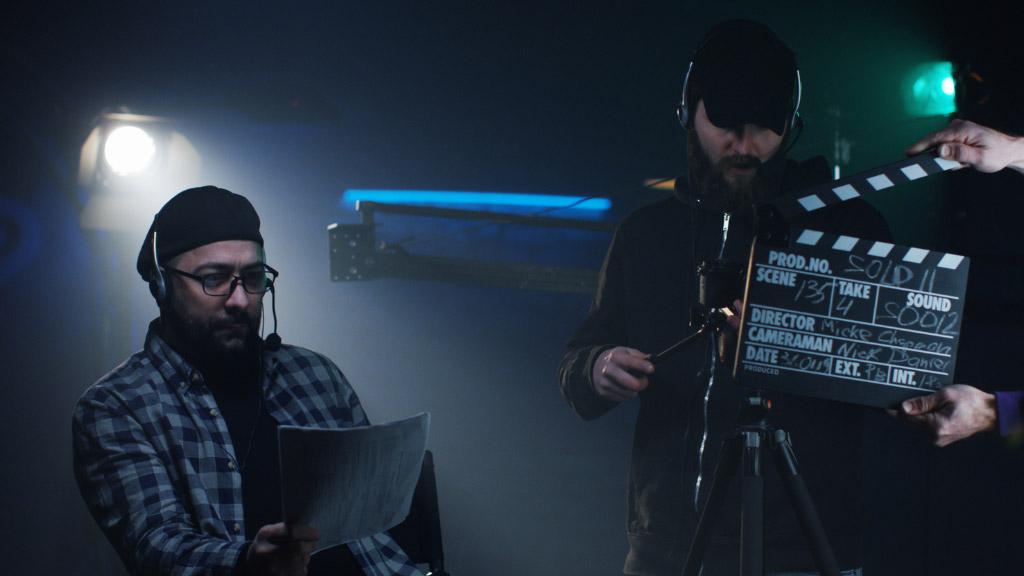Acting is a critical aspect of the entertainment industry, with actors playing a vital role in bringing stories to life. They are the backbone of many successful productions, and their ability to connect with audiences makes them so important. This article will explore 10 fascinating insights into acting, covering everything from its ancient roots to the latest trends and innovations.
We will delve into fun facts about acting, the evolution of acting styles, the psychology behind acting, the business of acting, the challenges actors face, the role of technology, the importance of training, the benefits, behind-the-scenes, and fun and interesting facts about acting from the people in the industry.
By the end of this article, you’ll better understand what makes acting such a fascinating art form.
The Origins of Acting
Acting has a very long history, with roots dating back to medieval times and the earliest civilizations. In ancient Greece and Rome, theatrical performances were essential to religious and cultural events, and these performances often featured actors portraying characters from mythology and folklore.
As theater evolved, new forms of storytelling emerged, such as the Roman pantomime, a form of performance that relied solely on physical movement and facial expressions.
Similarly, Chinese opera developed into a highly stylized and expressive art form incorporating music to interpret drama, dance, and acrobatics. In the traditions and techniques of acting across cultures, the underlying principle of creating a compelling performance through words, gestures, and emotions remained the same.
These early forms of performing laid the foundation for the diverse and dynamic art form of acting that we know today.
The Evolution of Acting
Over time, acting styles have changed significantly, reflecting society’s changing tastes and cultural norms. From the dramatic actions of the 19th century to the naturalistic method of acting of the 20th century, acting has continued to evolve and adapt to new forms of storytelling. Influential actors and actresses have played a vital role in shaping the development of film acting styles.
Actors like Marlon Brando and James Dean ushered in a new era of naturalistic acting, emphasizing emotional authenticity and a realistic portrayal of characters. Similarly, actress Meryl Streep’s versatility and range have set a new standard for actors in terms of skill and dedication required to excel in the craft.
As acting styles continue to evolve, so does the technology enabling actors to bring their performances to life.
CGI and motion capture have revolutionized how actors interact with their surroundings, allowing them to create entirely new worlds and experiences for audiences. Despite these technological advancements, the core principles of acting remain the same, with actors using their skill, talent, and dedication to create compelling and believable performances that capture the imagination of audiences worldwide.
The Psychology of Acting
Acting is more than actors just delivering lines and hitting marks. It is also about understanding the characters’ psychology and tapping into the emotions that drive their behavior. The role of emotion in acting is critical for both film and theater actors. Actors must be able to convey the emotional state of their characters convincingly to the audience.
 This requires a deep understanding of the human psyche and the ability to access and express various emotions. One of the most important aspects of acting is developing a character. This involves researching the character’s background, motivations, and personality traits and identifying their strengths and weaknesses.
This requires a deep understanding of the human psyche and the ability to access and express various emotions. One of the most important aspects of acting is developing a character. This involves researching the character’s background, motivations, and personality traits and identifying their strengths and weaknesses.
Actors may use various methods to develop their characters, including personal experiences, observation, and imagination. To portray a character effectively, voice actors and famous actresses must also be able to connect emotionally with the character’s experiences. This often entails long that involves voice actors drawing on their own experiences to create a sense of authenticity in the performance.
In addition to understanding the psychology of characters, actors must also be skilled at working with directors and other production team members to bring their performances to life. This requires strong communication skills and a willingness to collaborate and take direction from other actors.
Ultimately, the ability of actors to create compelling and believable performances depends on an actor’s understanding of the psychology of human behavior and their ability to tap into emotional memory and the emotions that drive it.
The Business of Acting
Acting is not just about the craft of acting job itself, but it is also a business. Many actors are familiar with the struggles of landing roles, auditioning, and negotiating contracts. In this section, we will explore the business aspect of an acting career, covering everything from the audition process to contract negotiations and salary.
Auditions and Casting
Actors often attend numerous auditions before landing a role. Auditions allow actors to showcase their abilities and demonstrate how to bring a character to life. Audition typically involves reading lines, performing monologues, and sometimes participating in improvisation exercises.
Casting directors are responsible for choosing the right actor for the role, considering a full range of factors such as appearance, talent, and chemistry with other male and female actors and cast members.
Contract Negotiations and Salary
Once an actor is offered a role, negotiations begin over the terms of the contract. Contracts may include details such as salary, length of the production, and usage of the actor’s image. Negotiations can be tricky, as actors often want to secure the best possible deal while producers try to keep costs down. In some cases, actors may have agents or lawyers to help negotiate.
Salaries for actors vary widely, with some making millions of dollars per project while others earn more modest pay.
The Challenges of Acting
Acting is a challenging and unique profession, that requires a lot of resilience and mental fortitude. Two of the most significant challenges actors face in the acting job are rejection and handling complex roles.
Coping with rejection
Rejection is a fact of life for actors. For every role an actor lands, there are countless auditions they didn’t get to pass. Coping with rejection can be difficult, but actors must learn how to deal with it.
One of the keys to coping with rejection is to stay positive and keep working on your craft. It’s important to remember that rejection doesn’t necessarily mean that you’re not a talented actor; it could simply mean that you weren’t the right fit for that particular role.
 Handling difficult roles
Handling difficult roles
Actors are often called upon to portray complex and challenging characters. Whether it be the first person who’s a historical figure, a person with a mental illness, or going through a traumatic experience, these roles can be emotionally draining.
Actors must care for themselves and their mental health when dealing with challenging parts. One way to do this is to work closely with a director and acting coach to develop strategies for coping with the emotional demands of the role.
The Role of Technology in Acting
The advancements in technology have revolutionized the entertainment industry, including acting. Technology has influenced how performances voice actors are captured, edited, and presented to the audience.
The Impact of Film and Television
The film and television industry has played a crucial role in developing acting as an art form. The ability to capture, stage, and preserve performances have allowed actors and actresses to reach wider audiences and achieve greater recognition.
Film and television have also pushed the boundaries of acting by enabling actors to explore complex characters and storylines that would not have been possible in live theater.
The Use of CGI and Motion Capture
Technology has also introduced new techniques for capturing performances, such as CGI and motion capture. These technologies allow actors to portray characters beyond human limitations, such as film actors acting as superheroes or creatures from another world.
Motion capture technology also creates more realistic and convincing performances for female actors in video games and animated movies.
While technology has brought many benefits to the industry, some argue that it can also adversely affect acting. For example, manipulating and enhancing performances through editing can lead to less emphasis on raw talent and more on the technical aspects of theater.
Nonetheless, technology will continue to shape the way we perceive and appreciate acting in the future.
The Importance of Training
Acting schools and conservatories offer formal training programs that give aspiring actors a solid foundation in the craft of theater acting. These programs typically cover various topics, including acting techniques, script analysis, movement, voice, and stage combat. However, training continues once an actor leaves school.
Ongoing education, audition techniques, and practice method acting are essential for staying sharp and honing one’s skills. Actors can continue their education through workshops, classes, and coaching sessions. Additionally, practice is critical to developing as an actor.
As with any other skill, a consistent approach helps actors improve and stay at the top of their play their game. Whether rehearsing for a play, practicing their scene work or a monologue, or participating in an improv group, actors who make time for regular practice are more likely to succeed in the competitive entertainment and drama world.
Behind-the-Scenes of Acting
Successful performance requires more than just the actors’ skills. Directors and producers play a crucial role in shaping the outcome of production. They work closely with the actors to help them bring their characters to life while overseeing every aspect of the show, from lighting to costumes.
Collaboration between the actors is critical; everyone involved in each stage of the production must work together to create a cohesive and effective performance.

Directors have the vision for the show and are responsible for bringing that vision and story to life. They guide actors, helping them interpret their characters in a way that fits with the production’s story and overall tone. They also work closely with the technical crew to ensure everything comes together seamlessly.
Producers, on the other hand, are responsible for the business side of things. They oversee the budget and ensure the show stays on track financially. They also work with marketing teams to promote the television show and ensure it reaches the right audience.
Ultimately, a production’s success depends on everyone’s collaborative efforts. Actors, directors, producers, and crew members can create something exceptional by working together.
Final Thoughts
In summary, acting has a rich history and has evolved, influenced by various factors such as culture, society, and technology. The psychology of acting explores the emotional depths of human experience, the acting career, and the business of acting involves navigating the industry and negotiating contracts.
Despite many instructors and the challenges actors face, such as coping with rejection and handling challenging roles, the collaboration between actors, directors, and producers ultimately produces the magic of great performances.
Formal training programs and ongoing education and practice are crucial for actors to develop their skills and succeed in the industry. The impact of film and television, as well as advancements in technology, have also shaped the world of acting.
In conclusion, acting is not just an act about playing a role on stage or on-cam or being famous. It is a complex craft that requires dedication, talent, and hard work.
The fascination with acting lies in its ability to transport audiences to another world, evoke emotions, and tell universal and timeless stories.









